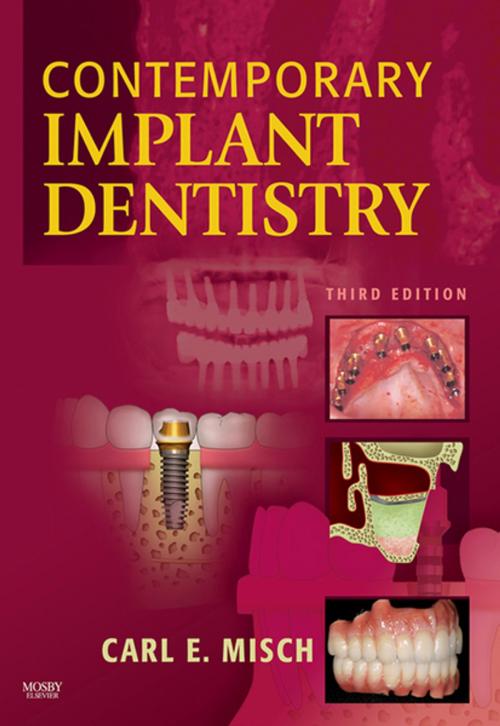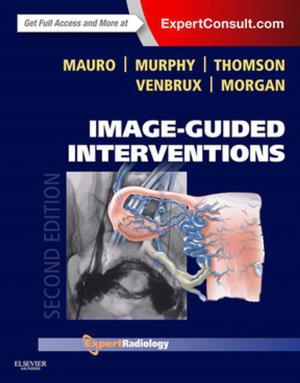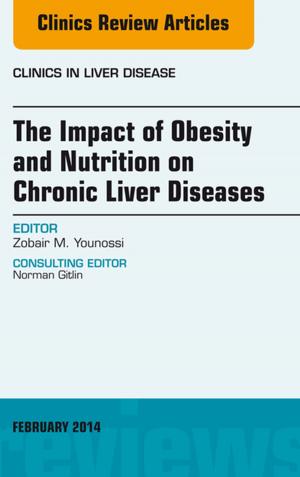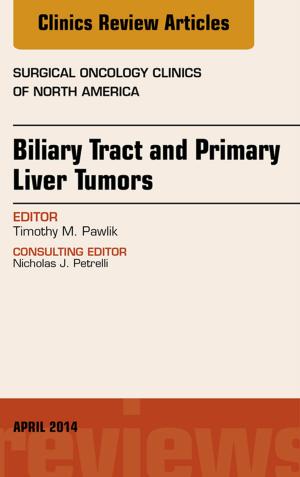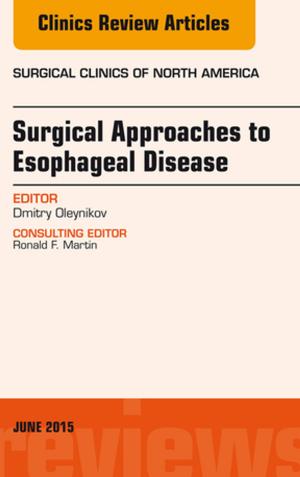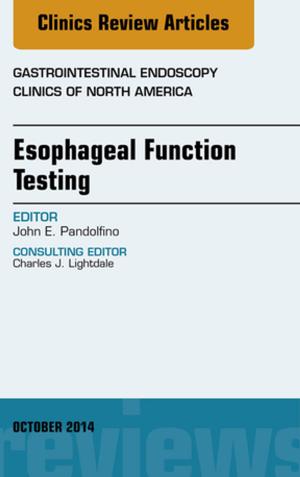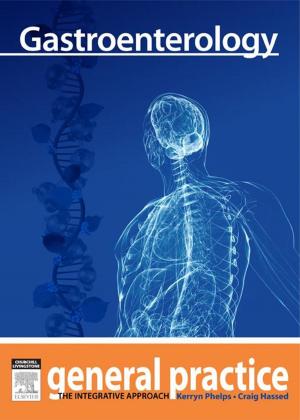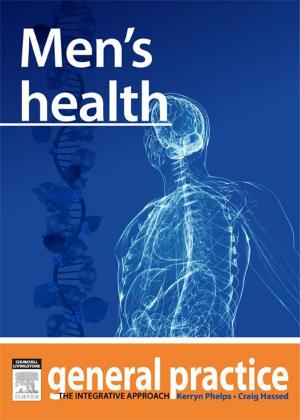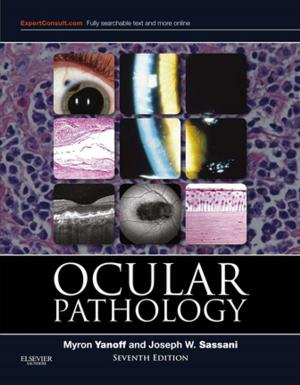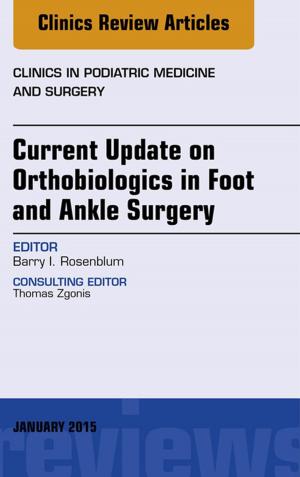| Author: | Carl E. Misch | ISBN: | 9780323079013 |
| Publisher: | Elsevier Health Sciences | Publication: | November 26, 2007 |
| Imprint: | Mosby | Language: | English |
| Author: | Carl E. Misch |
| ISBN: | 9780323079013 |
| Publisher: | Elsevier Health Sciences |
| Publication: | November 26, 2007 |
| Imprint: | Mosby |
| Language: | English |
Turn to this new third edition for consistent outcomes on even your most complex implant cases! World-renowned dental implantologist Carl E. Misch gives you expert advice and guidance on the various surgical approaches to placing implants in the revision of his best-selling classic. Over 1,000 full-color illustrations depict details of implants, related materials, and surgical procedures, while well-known contributors (Mohamed Sharawy, Martha Warren Bidez, Adriano Piatelli, and others) share a wealth of knowledge in their respective fields. This third edition provides an excellent opportunity for you to develop and refine your skills and experience more consistent, predictable clinical outcomes.
-
Thorough explanations of the rationale for implants and their specific characteristics discuss why different options work better for different patients; the rationale behind implant materials and sizes; and the overall science of osteointegrated implants - providing a full understanding of how implants behave under certain circumstances and how to make the best choices for implant patients.
-
Chapter on Diagnostic Imaging and Techniques focuses on the latest technology available to determine patient conditions, familiarizing you with recent advances and how they apply to treatment planning principles.
-
Section on Treatment Planning discusses the rationales for implant placement, variables in implants and patient conditions, and the four degrees of jaw bone density, Dr. Mischâs best-known criterion for successful implant placement.
-
Prepares you for actual treatment by reviewing scientific fundamentals such as applied anatomy, biomechanical principles, current biomaterials, prevention and management of dental infections, and pharmacologic considerations.
-
Surgical procedure chapters are of benefit to the implant surgeon and are critical to the restoring dentist who wants to better understand and appreciate surgical concepts.
-
Over 1,000 full-color illustrations depict details of implants, related materials, and surgical procedures.
-
Brand-new coverage includes: Key Implant Positions and Number, Ideal Implant Surgery, Extraction Socket and Barrie Membrane Bone Grafts, Sinus Pathology and Complications of Sinus Grafts, Immediate Loading for a Single Tooth, Partially Edentulous and Completely Edentulous Patient.
-
Important updates include indications and contraindications for rationale of biomechanical treatment plans, layered approach to bone grafting, autograft block bone grafting, soft tissue surgery, and implant esthetics and maintenance.
-
A new chapter on Tissue Engineering uses current information on platelet-rich plasma membranes and other elements of tissue engineering so you can take advantage of appropriate materials.
-
Emphasis on evidence-based implant outcomes provides valuable information on which procedures have the greatest likelihood of success and lowest risk of complications.
Turn to this new third edition for consistent outcomes on even your most complex implant cases! World-renowned dental implantologist Carl E. Misch gives you expert advice and guidance on the various surgical approaches to placing implants in the revision of his best-selling classic. Over 1,000 full-color illustrations depict details of implants, related materials, and surgical procedures, while well-known contributors (Mohamed Sharawy, Martha Warren Bidez, Adriano Piatelli, and others) share a wealth of knowledge in their respective fields. This third edition provides an excellent opportunity for you to develop and refine your skills and experience more consistent, predictable clinical outcomes.
-
Thorough explanations of the rationale for implants and their specific characteristics discuss why different options work better for different patients; the rationale behind implant materials and sizes; and the overall science of osteointegrated implants - providing a full understanding of how implants behave under certain circumstances and how to make the best choices for implant patients.
-
Chapter on Diagnostic Imaging and Techniques focuses on the latest technology available to determine patient conditions, familiarizing you with recent advances and how they apply to treatment planning principles.
-
Section on Treatment Planning discusses the rationales for implant placement, variables in implants and patient conditions, and the four degrees of jaw bone density, Dr. Mischâs best-known criterion for successful implant placement.
-
Prepares you for actual treatment by reviewing scientific fundamentals such as applied anatomy, biomechanical principles, current biomaterials, prevention and management of dental infections, and pharmacologic considerations.
-
Surgical procedure chapters are of benefit to the implant surgeon and are critical to the restoring dentist who wants to better understand and appreciate surgical concepts.
-
Over 1,000 full-color illustrations depict details of implants, related materials, and surgical procedures.
-
Brand-new coverage includes: Key Implant Positions and Number, Ideal Implant Surgery, Extraction Socket and Barrie Membrane Bone Grafts, Sinus Pathology and Complications of Sinus Grafts, Immediate Loading for a Single Tooth, Partially Edentulous and Completely Edentulous Patient.
-
Important updates include indications and contraindications for rationale of biomechanical treatment plans, layered approach to bone grafting, autograft block bone grafting, soft tissue surgery, and implant esthetics and maintenance.
-
A new chapter on Tissue Engineering uses current information on platelet-rich plasma membranes and other elements of tissue engineering so you can take advantage of appropriate materials.
-
Emphasis on evidence-based implant outcomes provides valuable information on which procedures have the greatest likelihood of success and lowest risk of complications.
